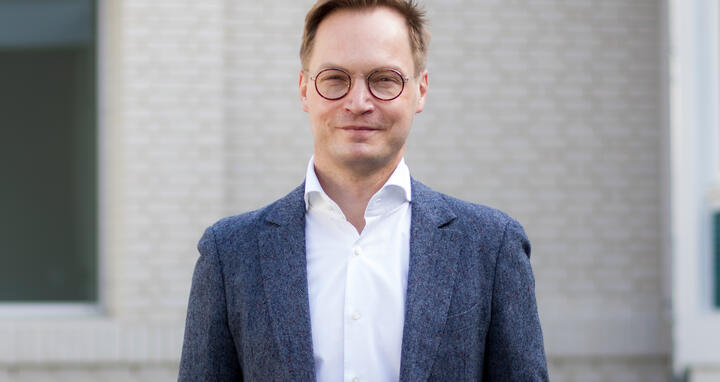Award-winning research in vascular biomedicine
Endothelial cells line the inner wall of blood vessels, creating a barrier between circulating blood and the surrounding tissues. “They control essential vascular functions and are responsible for things such as the widening and narrowing of blood vessels,” says Professor Michael Potente, a cardiologist who is particularly interested in understanding the metabolic processes in these cells. The North American Vascular Biology Organization (NAVBO) is now honoring Potente, who joined the Berlin Institute of Health at Charité (BIH) and the Max Delbrück Center in 2020, with the Judah Folkman Award for his many years of innovative research in this field.
Over the course of evolution, organisms developed that could no longer meet their oxygen and nutrient requirements by diffusion alone, thus leading to the emergence of blood vessels. This created a direct dependency between blood vessels and metabolism. “When tissues need more nutrients, they release signaling molecules,” says Potente. “These molecules encourage the vessels to form new connections.” He seeks to understand in detail how metabolic processes control the growth and remodeling of blood vessels – a process known as angiogenesis.
By looking at how endothelial cells sense and use metabolic signals, we want to identify regulatory principles and find out how perturbations in them promote disease.
The interplay between metabolism and angiogenesis also plays a central role in disease development. To counteract the undersupply of nutrients and oxygen, rapidly growing cancer cells stimulate the formation of new blood vessels. Angiogenesis is a key factor in certain eye diseases, too, such as wet macular degeneration. On the other hand, it would be desirable for new well-functioning blood vessels to form where clogged vessels prevent nutrients and oxygen from reaching the surrounding tissue. However, they are usually not generated in sufficient quantities, like in the case of arteriosclerosis of coronary vessels or “window-shopping disease.” Potente’s basic research addresses the mechanisms underlying these issues. “By looking at how endothelial cells sense and use metabolic signals,” he says, “we want to identify regulatory principles and find out how perturbations in them promote disease.”
About the Judah Folkman Award
The Judah Folkman Award is given to scientists who have made a significant impact on the field of vascular biology through their original research accomplishments. The award commemorates the U.S. surgeon and cell biologist Judah Folkman (1933–2008), who as a professor at Harvard Medical School in Boston made many contributions to vascular biology. As early as 1971, he advanced the then-controversial thesis that tumor growth and progression rely on new blood vessel formation. Folkman became a leading expert in angiogenesis research. Today, therapeutically influencing new vessel growth is a common strategy for treatment of cancer.
Text: Catarina Pietschmann






